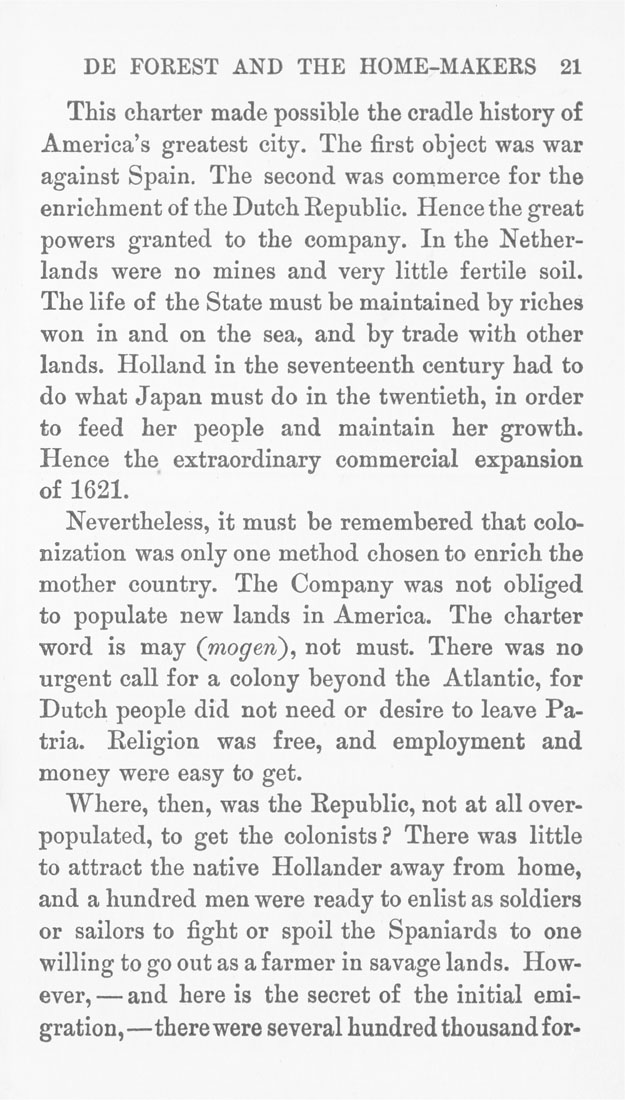DE FOREST AND THE HOME-MAKERS 21
This charter made possible the cradle history of
America's greatest city. The first object was war
against Spain. The second was commerce for the
enrichment of the Dutch Republic. Hence the great
powers granted to the company. In the Nether¬
lands were no mines and very little fertile soil.
The life of the State must be maintained by riches
won in and on the sea, and by trade with other
lands. Holland in the seventeenth century had to
do what Japan must do in the twentieth, in order
to feed her people and maintain her growth.
Hence the extraordinary commercial expansion
of 1621.
Nevertheless, it must be remembered that colo¬
nization was only one method chosen to enrich the
mother country. The Company was not obliged
to populate new lands in America. The charter
word is may (niogeri)^ not must. There was no
urgent call for a colony beyond the Atlantic, for
Dutch people did not need or desire to leave Pa¬
tria. Religion was free, and employment and
money were easy to get.
Where, then, was the Republic, not at all over-
populated, to get the colonists ? There was little
to attract the native Hollander away from home,
and a hundred men were ready to enlist as soldiers
or sailors to fight or spoil the Spaniards to one
willing to go out as a farmer in savage lands. How¬
ever, — and here is the secret of the initial emi¬
gration,—there were several hundred thousand for-
|








